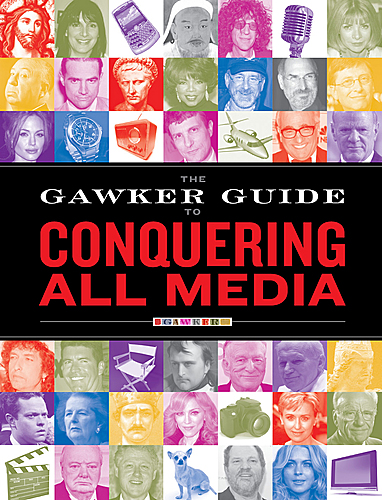
The lowest common denominator is how to dominate the media, no? From Mediaite, (not to be confused with meditate...) learn why this past decade will be known as the Gawker Years.
A remarkable 400,000,000 page views in November left editors gobsmacked...but also keep in mind the following
* The snarky, bomb-throwing editorial voice on which Gawker prides itself could be its biggest liability. If the success of hackneyed puppet comedian Jeff Dunham has taught us anything, it’s that a New York/LA sensibility ≠ the pulse of America. People who read blogs right now aren’t the pulse of America either, but that’s changing. A more upbeat sensibility like OnSugar’s, which the New York Times described as “short, light and sarcasm-free, with big photos and headlines,” could carry the day.
That said, Gawker broadened its focus and brightened its hues a few years ago to anticipate this; the snark factor has significantly dropped since the days of editors Jesse Oxfeld and Jessica Coen. The Nick Denton myth is occasionally overblown, but he does have a knack for foreseeing the big trends.
* Older powers, which still have the most resources at their disposal, can reemerge. In Hearst’s early days, the New York Times was seen as a dusty old has-been, with a circulation of only 25,000; look at what happened. Given its bulk and age, the Times has done a remarkable job of evolving with the web. Most recently, it has built up a commanding presence in social media, thanks, in part, to digital partnership and social media whiz Soraya Darabi, who is soon to depart the paper for Drop.io. And the upward trending of its blogs — the more than seventy of which the Times is thankfully pruning this year — is further proof of the Times‘ willingness to experiment and innovate.
Ironically, Gawker has been moving in the opposite direction by hiring experienced reporters. Actual reporting, done in an opinionated but informed voice, may be the key to the successful blogging — or is it web publishing? — of the next decade.
* Cheeky upstarts can materialize, seemingly from nowhere, and shake everything up in short order with new models previously undreamt. Old habits may die hard, but free habits — like which online publications you read — die easier and are reborn easier. Recall that Gawker was founded only in 2002.
No comments:
Post a Comment